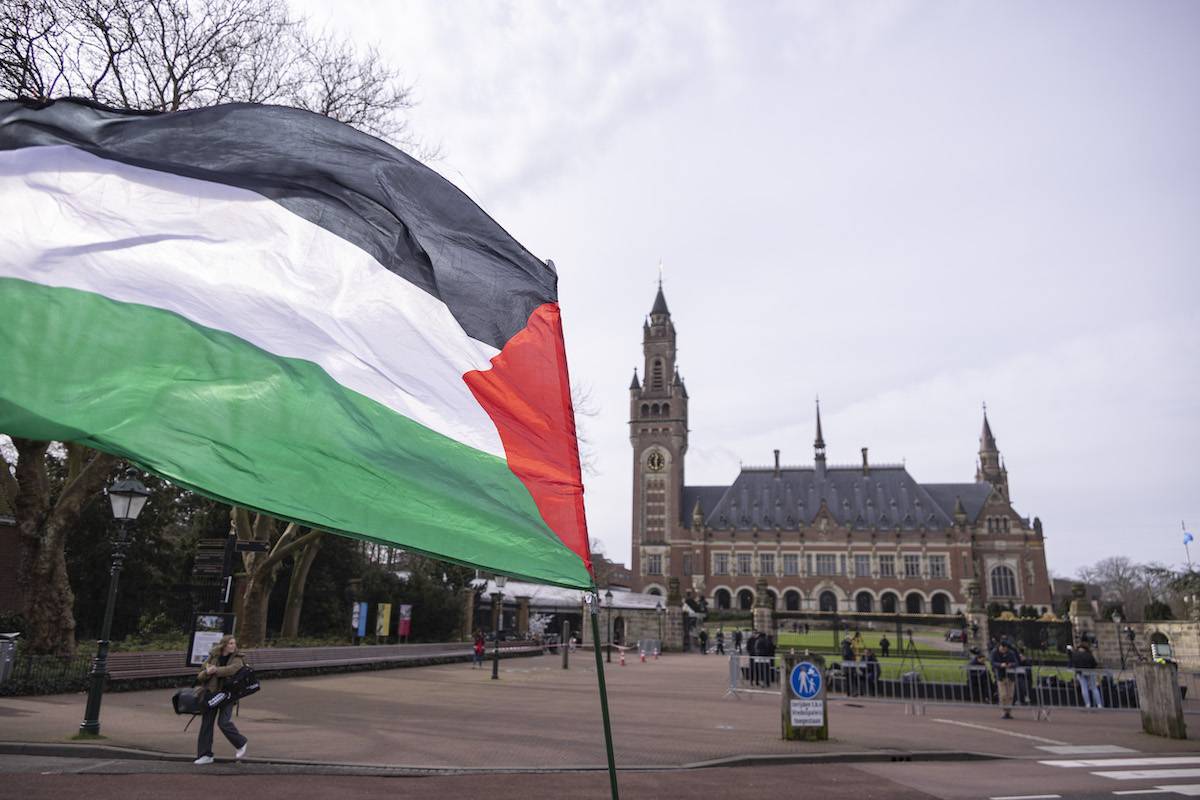Amid a rising wave of religious influence in Israeli political and party circles — driven by the ruling right-wing coalition —Jewish Torah-based organisations have become the largest source of donations to Israeli soldiers on military bases. These donations primarily consist of religious texts, including the Torah and the Talmud, highlighting the growing strength of the religious current. This trend confirms that the distribution of religious books to soldiers is far from a marginal practice, despite ongoing accusations that the army is pressuring its soldiers into religious observance and prioritising religious values over the civic principles traditionally shared among Jews.
Simultaneously, the Israeli army is witnessing a growing phenomenon: a notable number of senior officers in its General Staff are wearing the kippah, the traditional knitted religious skullcap. Statistics show that nearly 40 per cent of senior military leaders now wear it, pointing to the expanding influence of religious individuals within the military leadership. This not only reflects their growing sway over military decision-making in Israel but also raises concerns about its implications for increased military aggression against Palestinians and Arabs.
The names assigned by Israel to its aggressions on Gaza starkly reflect this growing religiosity in the military. At times, operations have been dubbed ‘Iron Swords’ (Charvot Barzel in Hebrew), a name with biblical roots intended to lend religious legitimacy and sacred aura to warfare — given the sword’s prevalence in Jewish scriptures and ancient texts. At other times, it was labelled Genesis War, a direct reference to the Book of Genesis, traditionally read by Jews during the Simchat Torah holiday, which coincided with Hamas’s infiltration of Israel on 7 October. Such names aim to convince Israelis that these are sacred, religious wars.
READ: Over 1,000 Israeli Air force personnel call to end Gaza war
Of the 81 military operations and aggression carried out by Israel against Palestinians and Arabs, approximately one-third were named after biblical texts and Jewish religious concepts. For many soldiers, these names frame the battles as God’s wars against the gentiles.
This transformation cannot be fully understood without acknowledging the rise of religious generals in the Israeli military. From figures like Yaakov Amidror to the recently resigned Chief of Staff Herzi Halevi. Between them stands a rising group of senior officers who have become a significant force within the General Staff. Their numbers are expected to rise in the coming years, prompting one observer to remark that Israel is approaching a point where its army will no longer be called the Israel Defence Forces, but rather the Defence Army of Religious Israel or the Army of God, as it no longer represents all segments of Jewish society as it did when it was founded nearly eight decades ago.
A key driver of this shift has been the establishment of a network of religious military academies. These institutions are producing a new generation of officers motivated not only by military aspirations but by religious zeal to seek combat roles within the army. Although religious Jews constitute only 13 per cent of Israel’s population, they now make up 40 per cent of cadets entering officer training courses — up from 2.5 per cent in 1990 and 26 per cent in 2008.
![Yaakov Amidror, former General and National Security Advisor, speaking at a conference on Israeli security, regional diplomacy, and international law and organized by the Jerusalem Center for Public Affairs or JCPA, a leading think tank, at the David Citadel Hotel, Jerusalem, Israel, October 22, 2007. [Dan Porges/Getty Images]](https://i0.wp.com/www.middleeastmonitor.com/wp-content/uploads/2025/04/GettyImages-2170411363.jpg?resize=1200%2C800&ssl=1)
Yaakov Amidror, former General and National Security Advisor, speaking at a conference on Israeli security, regional diplomacy, and international law and organized by the Jerusalem Center for Public Affairs or JCPA, a leading think tank, at the David Citadel Hotel, Jerusalem, Israel, October 22, 2007. [Dan Porges/Getty Images]
Soldiers who participated in the recent Gaza aggression reported that rabbis distributed religious booklets and prayer shawls, drawing comparisons between this war and the biblical struggles of the Jewish people.
They emphasised the character of Samson and his battles against the Philistines, urging soldiers to emulate him in their “holy war.” Some rabbis have even claimed that this war is writing a new chapter in the Bible, and many of their bloodthirsty rulings have been passed on to the soldiers, who reportedly implemented them in their aggression on Palestinians.
READ: Netanyahu coalition threatened if police arrest Haredi students who refuse military service
Many Israeli political and legal entities have taken note of the army’s gradual shift toward increased religiosity and ideological indoctrination, marked by ongoing efforts to reinforce its religious character. These include encouraging soldiers to engage more in prayers and devotional rituals at the expense of conventional military instruction. This trend is, in part, a response to the perceived failure of the education system to instil universal human and Jewish values.
Nevertheless, growing concern is emerging within Israel over the long-term implications of this trend for the military’s future, its cohesion and the sources of authority its soldiers ultimately recognise. In this evolving reality, each religious soldier may come to view a rabbinical authority as their primary point of reference — particularly in times of crisis or when faced with military orders that, according to certain rabbis, conflict with the teachings of the Torah. In such cases, some may choose to follow rabbinic rulings over official military directives. As religiosity deepens within the ranks, the likelihood increases that the army may be unable — or unwilling — to carry out critical political decisions, such as the evacuation of illegal settlements in the occupied West Bank, for fear that soldiers will defy such orders based on religious guidance.
The views expressed in this article belong to the author and do not necessarily reflect the editorial policy of Middle East Monitor.


![Soldiers stand near an Israeli flag as they receive a briefing near the border with the Gaza Strip on December 5, 2024 in Southern Israel, Israel [Amir Levy/Getty Images]](https://i0.wp.com/www.middleeastmonitor.com/wp-content/uploads/2025/02/GettyImages-2187758058-scaled-e1738843459914.jpg?fit=1200%2C800&ssl=1)








